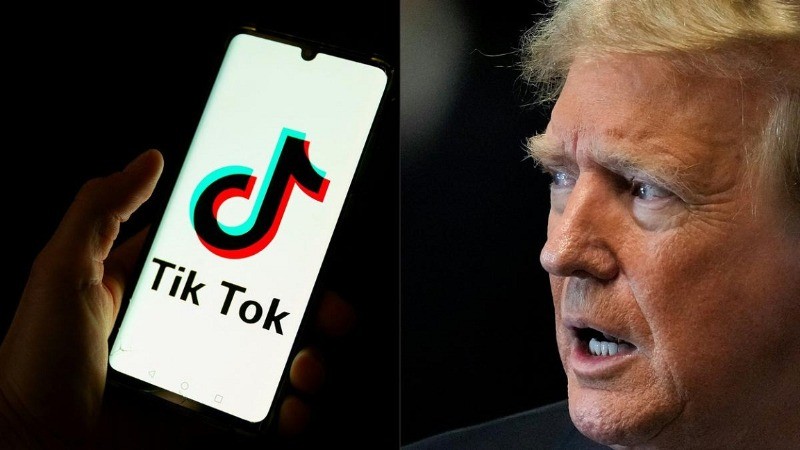
Former U.S. President Donald Trump has requested the Supreme Court delay the enforcement of a TikTok ban, scheduled to take effect next month. In a legal filing, Trump emphasized that the pause would allow his administration to pursue a negotiated resolution, aiming to protect both national security and First Amendment rights for millions of Americans who rely on the platform.
Trump’s request highlights his intent to prevent a nationwide shutdown of TikTok by working toward a solution that addresses concerns over its Chinese ownership. While the Biden administration supports the ban, citing serious national security risks, Trump’s position adds a new layer of complexity to the ongoing legal battle.
First Amendment Challenges and Court Debate
The Supreme Court is set to hear oral arguments on January 10 regarding whether the TikTok ban, approved by Congress in April, infringes upon First Amendment rights. The law allows TikTok to operate in the U.S. only if it divests from its Chinese parent company.
Trump, in his brief, refrained from directly addressing the First Amendment questions but urged the court to delay the January 19 enforcement date. He argued that the timing interferes with his ability to address the matter diplomatically upon assuming office.
“The First Amendment implications of shutting down a platform used by 170 million Americans are both sweeping and troubling,” Trump’s filing noted, raising concerns about setting a global precedent for suppressing online platforms over disfavored speech.
Biden Administration Defends Ban
President Joe Biden’s administration and bipartisan former government officials have backed the TikTok ban, emphasizing the app’s potential to compromise U.S. national security. The administration highlighted the app’s ability to collect extensive user data and influence content, potentially advancing China's geopolitical interests.
“TikTok poses a grave threat to American security,” the administration argued, warning that the platform could be manipulated to spread disinformation or sow discord during crises.
TikTok and Advocates Respond
TikTok contends that the ban represents a violation of First Amendment rights, as it shuts down a significant platform for free speech. The company urged lawmakers to explore alternative solutions, such as increased transparency about ownership, rather than a complete ban.
Civil liberties groups, including the ACLU, have also voiced concerns, stating that restricting access to foreign media undermines Americans’ right to freely access information online. Critics compared the ban to practices associated with repressive regimes.
Broader Implications for National Security and Free Speech
The case underscores a critical tension between national security and the freedom of speech, with the Biden administration and various advocacy groups presenting opposing perspectives. While national security experts emphasize potential risks tied to Chinese ownership, free speech advocates warn of the chilling effects of such sweeping restrictions.
Swift Supreme Court Review
The Supreme Court’s rapid agreement to hear the case reflects the urgency and significance of the matter. The outcome could set a precedent for balancing national security concerns with First Amendment protections in an increasingly digital age.
As the TikTok debate heads to the Supreme Court, the clash of priorities—protecting national security versus upholding constitutional freedoms—continues to draw attention. The decision, expected after the January hearing, will likely have far-reaching implications for the future of digital platforms in the U.S.